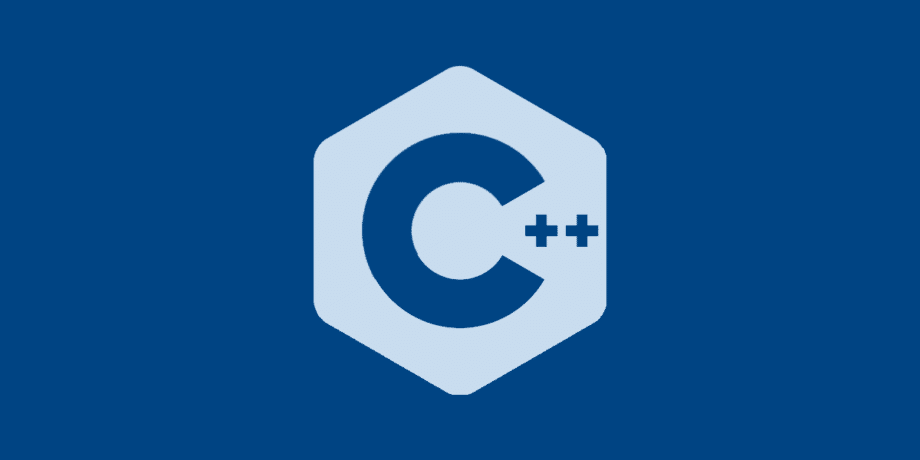Of all the programming languages on the market, Rust and C++ are two of the major contenders. Both can be utilized for similar projects and are considered ‘low-level’ languages, meaning their syntax is closer to machine code than human language. While both Rust and C++ are powerful coding languages, it can be difficult to determine which one is better suited for your business or project.
In this article, we compare the benefits and limitations of Rust and C++ to help you understand both languages better and establish which would be better suited for your needs. We provide an overview of both languages and analyze their strengths and weaknesses before providing a helpful comparison.
So, if you’re wondering about whether to use C++ or Rust for your next project, read on to see which one is right for you.
What is Rust?

Rust is a relatively new programming language that was released by Mozilla in 2010. It was conceived as an all-purpose programming language with an emphasis on speed, concurrency, and memory safety. It is considered a ‘C Killer’ in the programming community, which is to say that Rust was built from the ground up to remedy the shortcomings of C family languages like C++.
Rust is commonly used in a variety of different projects like augmented reality, virtual reality, and blockchain. It has built-in security which makes it beneficial for modern software and systems development.
As Rust is considerably newer than other programming languages, developers with job experience in Rust are highly sought after by technical recruitment agencies. It is viewed by the community as a more modern version of C++ and is a safer and more efficient option if you have a specific goal in mind.
Related: The Most Important Big Data Programming Languages.
The Strengths and Limitations of Rust

Rust is a great option for developers who want a programming language that focuses on safety and performance, but there are some drawbacks to its usage. Below, we discuss the pros and cons of Rust, giving you a better idea of whether it will be useful for your project.
Strengths

The main benefits of Rust are memory safety and better concurrency, which puts it above many other programming languages. Because of these elements, using Rust in projects often results in faster development times, which makes it ideal if you are on a tight deadline.
Concurrency is a major benefit of using Rust and is one of the language’s top selling points. Concurrency refers to the ability of a program or software to execute several of its parts in and out of order. Rust provides developers with parallel execution of concurrent processes, making it a great option if performance is your main concern.
Memory Safety is another great element of Rust which makes it attractive to developers. Rust utilizes an ownership model which ensures that memory is protected. By avoiding null pointers, dangling pointers, and data races, Rust prevents developer bugs and common coding errors. In short, fewer bugs mean faster development times and more secure memory.
Limitations

While Rust has a plethora of applications, there are some limitations to its usage which should be considered. The main issues with Rust come from its lack of extensive ecosystem and advanced features, which we expand upon below.
While it is more modern than C++ which makes it seem like a great choice, this is also one of the biggest downfalls of Rust. Unlike other programming languages, Rust lacks a robust collection of libraries and toolkits which can aid in its usage. This can make it time-consuming trying to find out the best way to utilize Rust for your project and could result in a lot of trial and error if you are not as adept with it.
Likewise, Rust includes complex features like trait bounds and associated types, which can be very challenging to become adept with. While these features offer powerful abstractions, they require a comprehensive understanding of the language and syntax in order to be used effectively.
What is C++?

While Rust is shiny and new in the developer community, C++ is often used for its dependability and scalability. The C family of coding languages has a history going back over 30 years when its first iteration, C, was released in 1978. C++ was released later, retaining the core features of its predecessor while also being more object-oriented than previous C languages.
C++ is one of the most well-known programming languages on the market and is a great choice if speed and resource management are top concerns for your project. It is also a great choice thanks to its wide variety of applications. C family programming languages give developers a lot more freedom and are extremely versatile, being used in a range of technologies from operating systems to Unreal Engine video games.
See also: 10 Most Popular Programming Languages to Learn.
The Strengths and Limitations of C++

While C++ is a top contender in the market, it does have some weaknesses which counterbalance its strengths. Its extensive libraries and adaptable nature make it a great choice for a range of applications, but it can be quite daunting for newer developers and
Strengths

Perhaps the greatest strength of C++ is its longevity. Having been around for over 30 years, the language has developed a dedicated community of programmers. As such, there are a wide variety of libraries and resources available to developers which can aid them in executing their project. Chances are if you want to make something with C++, someone has already done it before, so this can save you a lot of time.
Another benefit of C++ is the freedom that developers get when using this programming language over others, thanks to its inclusion of a Standard Template Library. It was mentioned earlier that C++ has been used in a variety of contexts to great success. With its Object-Oriented Programming, developers can create reusable and modular code through classes and objects, resulting in sophisticated software projects.
Another factor that makes C++ ideal is that many developers are well acquainted with it over other programming languages. This makes it easy to find developers and programmers for your projects as they will be much more able to jump into the task. Due to its adaptable nature across platforms, C++ is a great choice for modern development requirements.
Limitations

C++ has poorer memory management than other languages. It allows manual memory management through pointers, but this can lead to issues like memory leaks. There are practices which can help mitigate these problems, but they are quite advanced for many developers.
Another disadvantage of using C++ is its complexity. It has an extensive set of features which can be overwhelming for beginner programmers. C++ is a complex language that has several dialects that developers will need to learn before they can make full use of it. As such, it is more suited to seasoned programmers who are familiar with the syntax and understand the intricacies of C++.
Comparing Rust and C++?

Now that you have a better understanding of both programming languages, this section will compare them to help you decide which is the better choice for your project. It is important to note that there is some nuance when it comes to comparing programming languages. For example, a skilled developer could complete a project using Rust much faster than an inexperienced developer could complete a project using C++ for the first time. With this in mind, let’s explore the comparisons between these 2 languages.
For starters, both Rust and C++ are considered ‘low-level’ coding languages. Programming languages serve as an in-between for machine code and human language, providing instructions for a computer to complete a certain task through arithmetic and logical processes. As ‘low-level’ languages, both Rust and C++ are closer to machine code than human language, which requires less processing power.
When it comes to performance, Rust and C++ are both exceptional choices. Both languages prioritize performance which makes them safe choices for projects. Rust enjoys zero-cost abstractions which result in efficient execution of code and C++ gives developers the ability to write optimized code.
Rust and C++ are both very readable languages and can run fast enough for more strenuous software like OS and drivers. However, as we have mentioned, C++ has specific dialects which need to be mastered before it can be fully utilized to the best of its ability.
Another important comparison between these two languages is that C++ has a much steeper learning curve compared to Rust, which can make it hard to utilize for inexperienced developers and generally moves programmers towards choosing to become a Rust developer. However, this is somewhat mitigated by the extensive libraries available to C++ projects that Rust unfortunately lacks.
Finally, concurrency is a major comparison of the languages as Rust exceeds in this aspect. Rust has built-in concurrency features which makes it great at executing several parts of a process simultaneously. C++ on the other hand lacks built-in concurrency abilities making it difficult to build concurrent applications.
Related: 5 Fantastic Programming Languages Best for Cybersecurity.
Summary

Overall, both Rust and C++ are ‘low-level’ programming languages that prioritize performance and can be used in a variety of contexts. Rust is a much safer option due to its memory management features and concurrency abilities, but it has fewer resources available which can make it harder to utilize.
In the same vein, C++ is extremely adaptable, and developers can find extensive libraries which will aid them in producing their projects. However, it is more complex than Rust and requires a greater level of study and application before developers can fully utilize it.
Moreover, both languages have their benefits and drawbacks which should be carefully considered before choosing one over the other. Nevertheless, they are both exceptional programming languages that can produce intricate projects when used by experienced developers.





